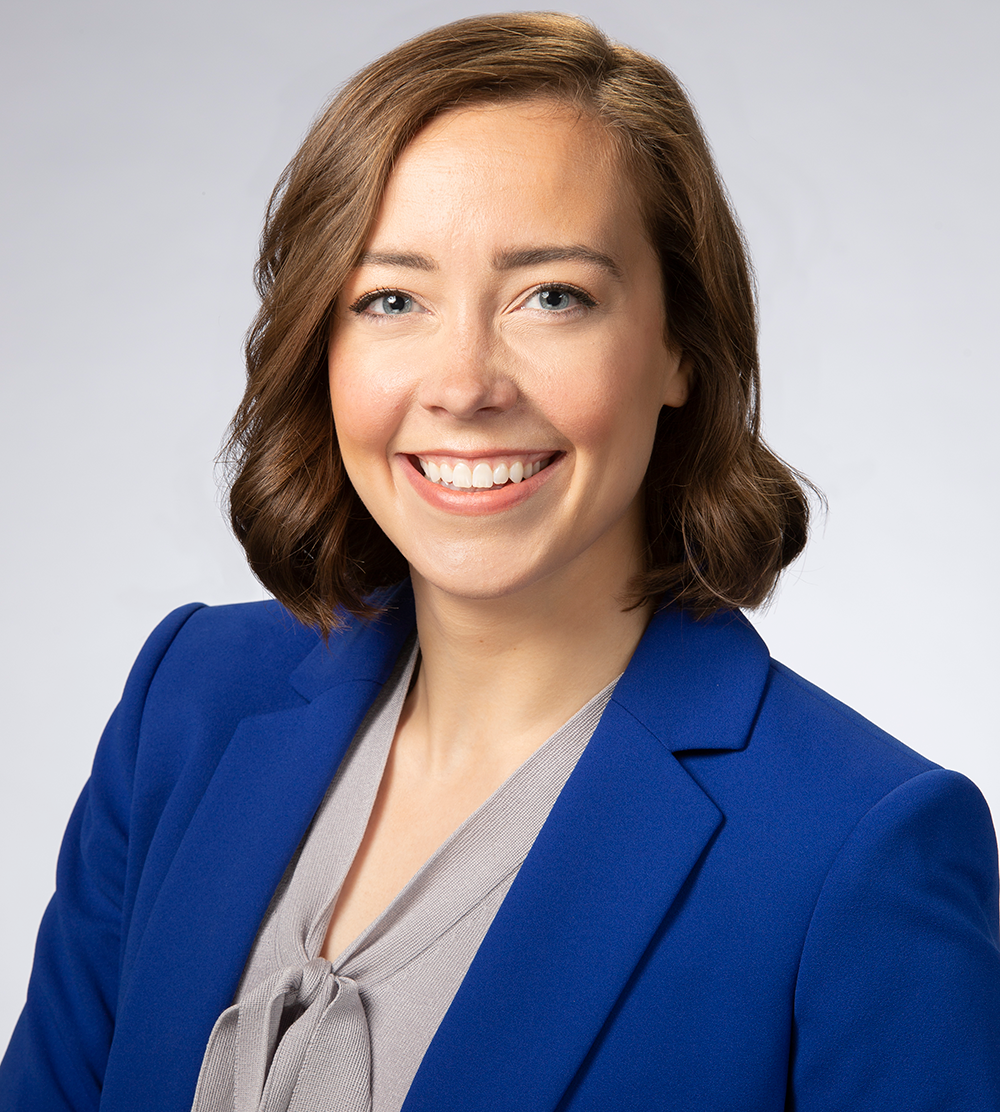
Cassandra Levitske, MD
Cassandra Levitske, MD, is a resident at the University of Chicago AdventHealth Hinsdale Family Medicine Residency, Hinsdale, IL. She is a 2025 recipient of a STFM Foundation Faculty for Tomorrow Resident Scholarship.
Cassandra's Family Medicine Story
Why are you interested in teaching family medicine?
Cassandra: My passion for teaching family medicine is fueled by a deep commitment to empowering others. Teaching allows me to inspire future physicians to be their best selves, fostering both competence and confidence in patient care. Family medicine is more than just a specialty to me—it is a way to shape future physicians who advocate for their patients, their communities, and themselves.
Through my experiences, I’ve seen the transformative power of a mentor who believes in their students and guides them to realize their potential. Teaching lets me provide that same support, helping learners develop not only clinical knowledge but also the self-assurance that they can accomplish anything they set their minds to. I want to create an environment where students feel empowered to ask questions, face challenges, and grow as individuals, emerging from training as resilient, capable physicians.
I’m also driven by a vision to nurture future leaders in medicine. I believe that family physicians play a crucial role in advocating for health equity and addressing the social determinants of health in their communities. By teaching, I can instill in students and residents the importance of these values, encouraging them to take leadership roles that extend beyond patient care and impact public health at large. I want them to leave my mentorship with a strong sense of purpose and the skills to advocate effectively for positive change in their communities and the health care system.
Teaching also aligns with my core value of authenticity—I aim to model how physicians can serve others while staying true to their values, fostering a balance between professional and personal growth. In guiding others, I’m not only sharing medical knowledge but also encouraging a lifelong commitment to learning, growth, and empathy in medicine.
Ultimately, my goal is to inspire and empower the future generation of family physicians to carry the torch forward. I’m excited to cultivate a spirit of excellence, integrity, and compassion that they can pass on to those they serve and mentor in the future.
How do you think you can make a difference in the future of family medicine?
Cassandra: I can make a difference in family medicine by empowering patients and shaping the next generation of physicians with the knowledge, confidence, and compassion needed for high-quality, empathetic care. Family medicine impacts lives across all stages, and I am dedicated to using my role to drive meaningful, positive change.
Building trust and empowering patients to take an active role in their health is central to my approach. I’ve seen how critical it is for patients, especially those from underserved or marginalized communities, to feel valued and heard. By advocating for health equity and addressing social determinants of health, I strive to provide compassionate, personalized care that meets patients where they are. This approach helps reduce disparities, enhances health outcomes, and contributes to stronger, healthier communities.
Education is also key to my impact in family medicine. I’m passionate about teaching and mentoring, aiming to cultivate purpose, confidence, and resilience in students and residents. Family medicine requires clinical skills, empathy, adaptability, and advocacy, and I believe in equipping future physicians with the skills to embrace all of these. I am also committed to encouraging learners to advocate for wellness and to pursue their own health-related passion projects, fostering a new generation of leaders with the skills to make positive changes within their communities and the health care system at large.
Wellness advocacy is another focus. Burnout is a significant issue in family medicine, and by promoting well-being and resilience, I encourage sustainable career satisfaction. I aim to create a supportive learning environment where trainees feel empowered to prioritize their own health and bring their authentic selves into patient care. This aligns with my goal of modeling a career that integrates professional fulfillment with personal well-being, serving as a blueprint for those I mentor.
Additionally, my background in global health and work with diverse communities inform my approach to family medicine. This perspective has taught me the value of cultural competency and adaptability, qualities I strive to integrate into my practice and impart to learners. By modeling these skills, I can prepare future family physicians to work effectively with diverse patient populations, respecting cultural differences while delivering high-quality care.
Ultimately, I aim to make a difference in family medicine by combining compassionate patient care, a commitment to education, and advocacy for both wellness and purpose-driven projects. Through these efforts, I can leave a lasting impact on patients, the next generation of physicians, and the communities we serve. Family medicine is a field where small, consistent actions lead to profound changes, and I am excited to contribute to this legacy.
Contribute to the Creation of the Next STFM Story
Transforming the future of family medicine would not be possible without the generosity of countless STFM members and supporters. Through both member and departmental donations, the STFM Foundation is able to support the pipeline for academic family medicine.
Help transform the future of academic family medicine by donating to the STFM Foundation. If you have questions about the STFM Foundation, contact Mindy Householder at (800) 274-7928 or mhouseholder@stfm.org.



